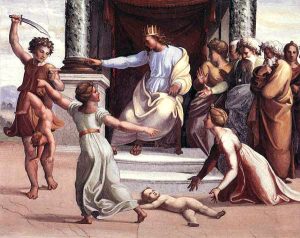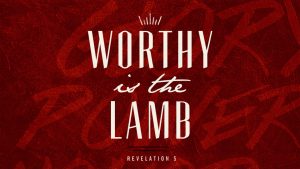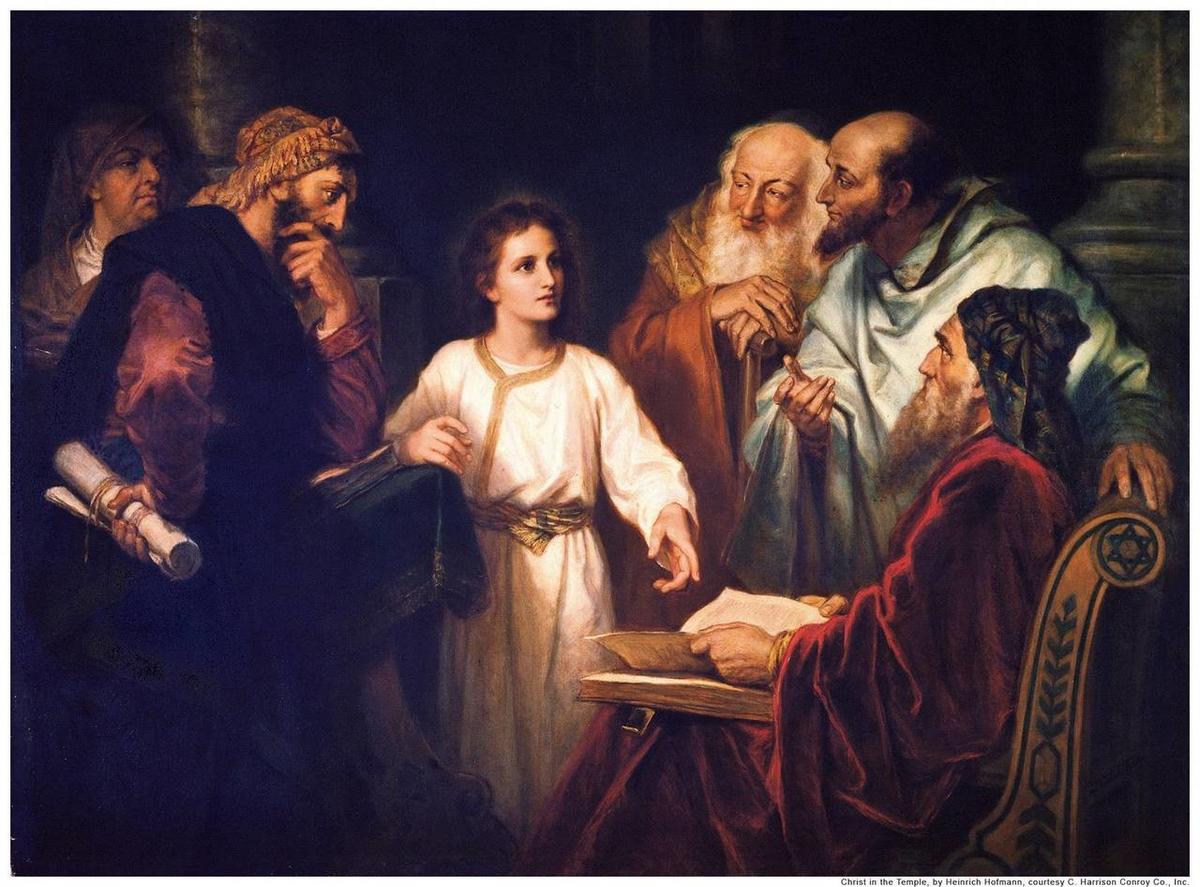The Bible has much to say about wisdom. Whether in Hebrew (chokmah) or Greek (sophia), wisdom is defined as insight, skill or knowledge.[1] It is understood to be the “ability to think and act using knowledge, experience, understanding, common sense, and insight.”[2] In addition, wisdom is said to be, “the ability to discern or judge what is true, right, or lasting.[3]
Scripture compares the wisdom of the world with the wisdom of God. The former is said to be foolishness,[4] demonic and that which manifests in sin.[5] Whereas wisdom that is from above is “pure, peaceable, gentle, reasonable, full of mercy and good fruits, unwavering, without hypocrisy” and “righteous.”[6] This pure wisdom from God is available to man: [7]
Daniel 2:20 (NASB) Daniel said, “Let the name of God be blessed forever and ever, For wisdom and power belong to Him. 21“…He gives wisdom to wise men and knowledge to men of understanding. (emphasis added)
James 1:5-6 (NASB) But if any of you lacks wisdom, let him ask of God, who gives to all generously and without reproach, and it will be given to him. But he must ask in faith without doubting… (emphasis added)
According to Unger’s Bible Dictionary, “Wisdom is in the deepest sense a divine gift.”[8] Paul speaks to this when he says that wisdom is one of the gifts of the Spirit that is available to believers:
1 Corinthians 12:8 (NASB) For to one is given the word of wisdom through the Spirit, and to another the word of knowledge according to the same Spirit (emphasis added)

Perhaps the most well known example of a man who received wisdom from God is King Solomon. When he inherited the throne of his father, David, he prayed for God to grant him wisdom to rule His people:
2 Chronicles 1:10 (NASB) “Give me now wisdom and knowledge, that I may go out and come in before this people, for who can rule this great people of Yours?” (emphasis added)
God granted the new king’s request to the extent that he was known all over the world for his superior wisdom.[9]
Most Christians are aware of the gift of wisdom Solomon received, but few are aware that God granted divine wisdom to another man, namely, Jesus of Nazareth. Some may take issue with this statement, contending that Jesus is God and, therefore, the giver of great wisdom, not the recipient of it. However, Scripture paints a different picture.
Jesus Grew in Wisdom
After Joseph and Mary presented Jesus at the Temple, we’re told that the child grew and increased in wisdom:
Luke 2:40 (NASB) The child [Jesus] continued to grow and become strong, increasing in wisdom; and the grace of God was upon Him. (emphasis added)
When Jesus was twelve, he travelled with his family to Jerusalem for the Feast of the Passover. On their return to Nazareth, his parents realized that he was not among them. They searched for him and found him at the temple, seated among the teachers:
Luke 2:46-47 (NASB) Then, after three days they found Him in the temple, sitting in the midst of the teachers, both listening to them and asking them questions. 47 And all who heard Him were amazed at His understanding and His answers. (emphasis added)
 Luke concludes this story about the Messiah-in-training by saying, yet again, that Jesus continued to grow in wisdom:
Luke concludes this story about the Messiah-in-training by saying, yet again, that Jesus continued to grow in wisdom:
Luke 2:52 (NASB) And Jesus kept increasing in wisdom and stature, and in favor with God and men. (emphasis added)
If Jesus is God, as orthodoxy claims, these verses pose a serious problem. How can Wisdom-incarnate continually increase in wisdom? As God, he would innately possess this attribute. Moreover, Luke writes that Jesus also received God’s grace and favor in increasing measure. If Jesus is God, why would God need the grace and favor of God? These are self contradictory statements.
Some may counter by saying that only Jesus’ human nature grew in wisdom, while his divine nature eternally possessed it. But the theory of Christ’s dual natures, also known as the hypostatic union, is not found in Scripture:
There are no direct discussions in the New Testament regarding the dual nature of the Person of Christ as both divine and human, and since the early days of Christianity, theologians have debated various approaches to the understanding of these natures, at times resulting in ecumenical councils, and schisms.[10] (emphasis added)
Indeed, Baptist theologian, Millard Erickson, writes:
[Jesus’ dual natures] is one of the most difficult of all theological problems, ranking with the Trinity…The issue is further complicated by the relative paucity of Biblical material with which to work. We have in the Bible no direct statements about the relationship of the two natures. [11] (emphasis added)
In addition, Biblical scholar and professor, Charles Feinberg, admits that the doctrine of Jesus’ dual natures cannot be found in Scripture:
When we seek to understand the hypostatic union in its implications, those features and factors involved in it, it is not long before we find that the New Testament contains no systematic or formal setting forth of the doctrine of the two natures in the Person of Christ.[12] (emphasis added)
That’s because the concept of Christ’s dual natures developed over a considerable period of time. It wasn’t until the Council of Chalcedon in 451 AD that the doctrine became official Church dogma. The complexities and contradictions of this speculative doctrine have yet to be satisfactorily resolved. What is clear, however, is that Jesus increased in wisdom.
Christ, the Wisdom of God
 The Jews believed that God was made known through His miraculous power; therefore, they asked for signs.[13] Greeks, on the other hand, searched for God through philosophy (the love, pursuit or study of sophia, i.e., wisdom). But God said that the world would not come to know Him through its wisdom.[14] How then does man come to know God? Through the Christ whom He sent:
The Jews believed that God was made known through His miraculous power; therefore, they asked for signs.[13] Greeks, on the other hand, searched for God through philosophy (the love, pursuit or study of sophia, i.e., wisdom). But God said that the world would not come to know Him through its wisdom.[14] How then does man come to know God? Through the Christ whom He sent:
1 Corinthians 1:23-24 (NASB) but we preach Christ crucified, to Jews a stumbling block and to Gentiles foolishness, 24 but to those who are the called, both Jews and Greeks, Christ the power of God and the wisdom of God. (emphasis added)
Some interpret this to mean that Jesus is God since he is said to be God’s power and wisdom. However, Scripture testifies that God manifested or revealed both His power and His wisdom through the man, Jesus. Unfortunately, this proved to be a stumbling block for some:
Matthew 13:54-57 (NASB) He came to His hometown and began teaching them in their synagogue, so that they were astonished, and said, “Where did this man get this wisdom and these miraculous powers? 55 “Is not this the carpenter’s son? Is not His mother called Mary, and His brothers, James and Joseph and Simon and Judas? 56 “And His sisters, are they not all with us? Where then did this man get all these things?” 57 And they took offense at Him. But Jesus said to them, “A prophet is not without honor except in his hometown and in his own household.” (emphasis added).
Where did this man get this wisdom and miraculous powers? According to Scripture, from God. Peter said that when Jesus performed miracles, it was God working through him:
Acts 2:22 (NASB) “Men of Israel, listen to these words: Jesus the Nazarene, a man attested to you by God with miracles and wonders and signs which God performed through Him in your midst, just as you yourselves know [15] (emphasis added)
Jesus isn’t the all powerful God, but the vehicle through whom God displayed His power. Regarding Christ possessing divine wisdom, the prophet Isaiah testified of this when he wrote about the coming Messiah (Christ):
Isaiah 11:2 (NASB) The Spirit of the LORD will rest on Him, The spirit of wisdom and understanding, The spirit of counsel and strength, The spirit of knowledge and the fear of the LORD. (emphasis added)
 The Messiah would be given the spirit of the LORD and, specifically, the spirit of wisdom. Not that he is God, but that he would operate in God’s wisdom, enabled by God’s Spirit. In like manner, Paul prayed that the God of Jesus would give believers in Ephesus this same spirit of wisdom:
The Messiah would be given the spirit of the LORD and, specifically, the spirit of wisdom. Not that he is God, but that he would operate in God’s wisdom, enabled by God’s Spirit. In like manner, Paul prayed that the God of Jesus would give believers in Ephesus this same spirit of wisdom:
Ephesians 1:17 (NASB) that the God of our Lord Jesus Christ, the Father of glory, may give to you a spirit of wisdom and of revelation in the knowledge of Him.[16] (emphasis added)
Jesus became to us wisdom from God
Paul’s letter to the Corinthians provides us with still more insight regarding Jesus being the wisdom of God:
1 Corinthians 1:30 (NASB) But by His [God’s] doing you are in Christ Jesus, who became to us wisdom from God, and righteousness and sanctification, and redemption (emphasis added)
The context of this verse relates how God, in His wisdom, determined that the cross of Christ would be the means of salvation. Some considered the message to be foolishness, but to those who are saved, it is the power of God.[17] Therefore, Jesus became the manifestation and fulfillment of God’s wisdom to those who believe. This wisdom did not originate with Jesus but came from God as the passage states.
In addition, Paul expressed his desire for the church in Colossae to have a true knowledge of God’s mystery, that is, Christ, who is the hope of salvation for the Jew and also for the Gentile:[18]
Colossians 2:2-3 (NASB) that their hearts may be encouraged, having been knit together in love, and attaining to all the wealth that comes from the full assurance of understanding, resulting in a true knowledge of God’s mystery, that is, Christ Himself, 3 in whom are hidden all the treasures of wisdom and knowledge. (emphasis added)
Paul is not saying that Christ is the God of wisdom and knowledge, but that Christ is the means by which we can obtain them. The Good News Translation renders it thus:
In this way they will know God’s secret, which is Christ himself. He is the key that opens all the hidden treasures of God’s wisdom and knowledge.
Just a few verses later Paul warns the church against trying to acquire wisdom and knowledge by some means other than Christ:
Colossians 2:8 (NASB) See to it that no one takes you captive through philosophy and empty deception, according to the tradition of men, according to the elementary principles of the world, rather than according to Christ. (emphasis added)
Jesus Deemed Worthy to Receive Wisdom
After God raised Jesus from the dead and exalted him to His right hand, the Christ was deemed worthy to receive even more wisdom, among other glorious things:
 Revelation 5:12 (NASB) saying with a loud voice, “Worthy is the Lamb that was slain to receive power and riches and wisdom and might and honor and glory and blessing.” (emphasis added)
Revelation 5:12 (NASB) saying with a loud voice, “Worthy is the Lamb that was slain to receive power and riches and wisdom and might and honor and glory and blessing.” (emphasis added)
If Jesus is the wise, omniscient God, this makes no sense as he would innately and eternally possess these things. But the context helps us understand that Jesus is considered worthy to receive these marvelous gifts from God because he obeyed God, even unto death.
Complex, post-Biblical Reasoning or the Inspired Texts?
The texts we have reviewed reveal critical flaws in the post-Biblical theory that Jesus is deity. For example, if Jesus is God, why would he need to be filled with the Spirit of God? Moreover, why would he need the spirit of wisdom if he is Wisdom ? How could Wisdom-incarnate become wisdom? Why would Jesus fear the LORD if he is the LORD? There are no rational, Biblical answers to these questions. However, if Jesus is the man whom God exalted to rule the world under His authority,[19] then, of course, he would need divine wisdom, even more than Solomon did. Furthermore, he would need the fear of the LORD, for Scripture teaches that it is the beginning of wisdom.[20]
Instead of turning to complex, post-Biblical reasoning, such as the hypostatic union, to understand how Jesus grew in wisdom, we must rely on the answers provided us within the inspired texts. When we align ourselves with the word of God and accept that Jesus is the human Messiah, we understand his need for the wisdom, grace, and the favor of God.
[1] Strong’s Exhaustive Concordance of the Bible; Thayer’s Greek Lexicon.
[2] “Wisdom,” Dictionary.com, accessed 10-8-19.
[3] “Wisdom,” American Heritage Dictionary of the English Language, Fifth Edition, (Houghton Mifflin Harcourt Publishing Company 2016), accessed online 11-13-19. https://www.ahdictionary.com/word/search.html?q=wisdom
[4] 1 Corinthians 3:19.
[5] James 3:15-16.
[6] James 3:13-18.
[7] See also: Proverbs 2:6; Psalm 51:6 (HCSB).
[8] “Wisdom,” Unger’s Bible Dictionary, (Chicago, IL: Moody Press, 1966), p. 1170.
[9] 1 Kings 3:12; 4:29-31, 34; 10:4-10, 24.
[10] Christology, Wikipedia, accessed 11-11-19.
[11] Millard J. Erickson, Introducing Christian Doctrine, (Grand Rapids, MI: Baker Book House, 2001), p. 234.
[12] Charles Lee Feinberg, “The Hypostatic Union,” Bibliotheca sacra 92, no. 368 (1935): 412.
[13] John 2:18; 6:30; Matthew 12:38-39; 16:1-4; Mark 8:11; Luke 11:16, 29; 23:8.
[14] 1 Corinthians 1:18-22.
[15] See also Acts 10:38; John 10:32; 14:10, etc.
[16] The definite article “a” is not present in the Greek. Thus, the phrase “a spirit of wisdom” can also rightly be translated “the spirit of wisdom.”
[17] 1 Corinthians 1:18-31.
[18] The mystery is that God would make salvation available to Gentiles as well. See Colossians 1:25-29 and Ephesians 3:3-13.
[19] 1 Corinthians 15:15-28.
[20] Proverbs 9:10, Psalm 111:10.



